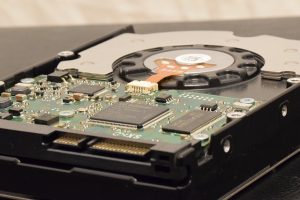Top 5 Reasons to Shred Your Hard Drives
EVERYTHING is on your hard drives. Employee information, customer information, banking, research and development, legal documents, passwords, business correspondence, financial records, and more. As businesses generate vast amounts of data, the risk of unauthorized access to sensitive information increases. One of the most effective ways to mitigate this risk is by shredding old or unused hard drives. Here are the top 5 reasons to shred your hard drives.
1. Protect Sensitive Information
Hard drives store a wealth of sensitive information, from financial records and personal identification details to confidential business data and intellectual property. Even if you delete files or format the drive, data can often be recovered using specialized software. Shredding your hard drives ensures that this information is irretrievably destroyed, safeguarding it from potential data breaches.
2. Comply with Data Protection Regulations
Organizations are subject to various data protection laws and regulations, such as the General Data Protection Regulation (GDPR), the Health Insurance Portability and Accountability Act (HIPAA), and the Sarbanes-Oxley Act. These regulations mandate proper disposal of sensitive data to prevent unauthorized access. Failure to comply can result in hefty fines and legal consequences. Shredding hard drives is a reliable way to ensure compliance and avoid legal pitfalls.
3. Prevent Identity Theft
Identity theft is a growing concern, with cybercriminals constantly seeking new ways to exploit personal information. Old hard drives can be a goldmine for identity thieves, who can recover deleted files and extract sensitive data. By shredding your hard drives, you eliminate the possibility of your personal or business information being used for fraudulent activities.
4. Safeguard Your Reputation
Data breaches can severely damage an organization’s reputation, eroding customer trust and potentially leading to loss of business. News of a breach can spread quickly, and customers are likely to take their business elsewhere if they believe their information is not secure. Shredding hard drives demonstrates a commitment to data security, helping to maintain your reputation and customer confidence.
5. Avoid Environmental Hazards
Improper disposal of hard drives can have environmental consequences. Many electronic devices contain hazardous materials that can leach into the soil and water if not disposed of correctly. Shredding hard drives ensures that they are properly recycled, reducing the environmental impact and promoting sustainable practices. Many shredding services also offer eco-friendly disposal options, ensuring compliance with environmental regulations.
Conclusion
Shredding your hard drives is a crucial step in safeguarding sensitive information, complying with data protection laws, preventing identity theft, protecting your reputation, and minimizing environmental impact. As the digital landscape continues to evolve, taking proactive measures to secure your data has never been more important. For all business sectors, shredding hard drives is a sound investment in your data security strategy.

